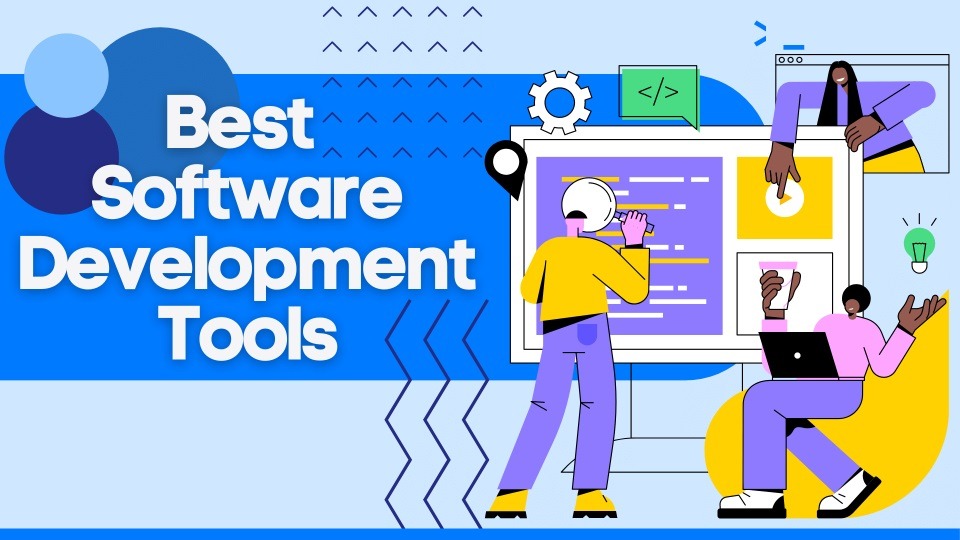Software development is a dynamic field that evolves rapidly, and having the right tools is essential for efficiency, quality, and collaboration. Whether you’re a seasoned developer or just starting, using the right software development tools can make a significant difference in your workflow. This guide will explore the essential tools that every developer should consider for coding, version control, testing, collaboration, and more.
What Are Software Development Tools?
Software development tools are applications or platforms that assist developers in designing, coding, testing, and maintaining software. These tools can range from simple code editors to comprehensive integrated development environments (IDEs), and from version control systems to debugging utilities.
Why Are Software Development Tools Important?
Using the right tools can help you:
- Increase Productivity: Automate repetitive tasks and streamline your workflow.
- Improve Code Quality: Use tools that enforce coding standards and best practices.
- Enhance Collaboration: Work more efficiently with your team using version control and project management tools.
- Ensure Reliability: Test your code with debugging and testing tools to catch issues early.
Essential Software Development Tools
Here’s a rundown of the key categories of software development tools and some of the best options available in 2024:
1. Integrated Development Environments (IDEs)
IDEs are comprehensive environments that provide all the tools necessary for software development in one place, including a code editor, debugger, and build automation tools.
Top IDEs:
- Visual Studio Code: A lightweight, powerful editor with extensive extensions.
- JetBrains IntelliJ IDEA: Ideal for Java development but supports many languages.
- Eclipse: A free, open-source IDE primarily for Java but supports other languages with plugins.
2. Version Control Systems
Version control systems (VCS) track changes in your code and allow you to collaborate with other developers.
Top VCS Tools:
- Git: The most widely used VCS, known for its speed and efficiency. Git is essential for any developer.
- GitHub: A platform built on Git that offers collaborative features like pull requests, issues, and project management.
- GitLab: An alternative to GitHub, with integrated CI/CD pipelines and project management tools.
3. Code Editors
While IDEs are powerful, sometimes a simple code editor is all you need. Code editors are lightweight tools that provide syntax highlighting, code completion, and more.
Top Code Editors:
- Sublime Text: Known for its speed and simplicity, with plenty of plugins available.
- Atom: A hackable text editor developed by GitHub, great for customization.
- Notepad++: A lightweight editor for Windows that’s great for quick edits.
4. Collaboration and Project Management Tools
Effective collaboration is key in software development, especially for distributed teams.
Top Collaboration Tools:
- Jira: A popular project management tool, especially in Agile and Scrum methodologies.
- Trello: A visual tool for managing projects with boards and cards, ideal for smaller teams.
- Slack: A communication platform that integrates with many development tools for seamless collaboration.
5. Continuous Integration/Continuous Deployment (CI/CD) Tools
CI/CD tools automate the process of integrating changes into a shared repository and deploying them to production, ensuring that code is always in a deployable state.
Top CI/CD Tools:
- Jenkins: An open-source automation server that supports hundreds of plugins.
- CircleCI: A cloud-based CI/CD tool that’s easy to set up and use.
- Travis CI: Another cloud-based CI/CD service, integrated tightly with GitHub.
6. Testing Tools
Testing tools help ensure your software is reliable and free from bugs. These tools can automate unit tests, integration tests, and performance tests.
Top Testing Tools:
- Selenium: A tool for automating web browsers, primarily used for testing web applications.
- JUnit: A framework for unit testing in Java, widely used in Test-Driven Development (TDD).
- Postman: A popular tool for testing APIs, with powerful automation features.
7. Database Management Tools
Database management tools help developers design, query, and manage databases efficiently.
Top Database Tools:
- MySQL Workbench: A visual tool for database design and management.
- pgAdmin: A comprehensive database management tool for PostgreSQL.
- MongoDB Compass: A GUI for MongoDB that makes it easy to work with NoSQL databases.
Emerging Trends in Software Development Tools
As software development continues to evolve, new tools and technologies are emerging to meet the needs of developers. Here are some trends to watch in 2024:
- AI-Powered Development Tools: AI is increasingly being integrated into development tools to automate code generation, bug fixing, and testing.
- Low-Code/No-Code Platforms: These tools enable rapid application development without deep coding knowledge, democratizing software creation.
- Cloud-Native Development: Tools that support cloud-native development, such as Docker and Kubernetes, are becoming essential for scalable, modern applications.
Conclusion
Choosing the right software development tools can greatly enhance your productivity, code quality, and collaboration. Whether you’re working on a solo project or part of a large development team, these tools are essential for delivering high-quality software efficiently. Stay updated with the latest trends and continue exploring new tools that can help you streamline your development process. With the right set of tools, the possibilities are endless!
